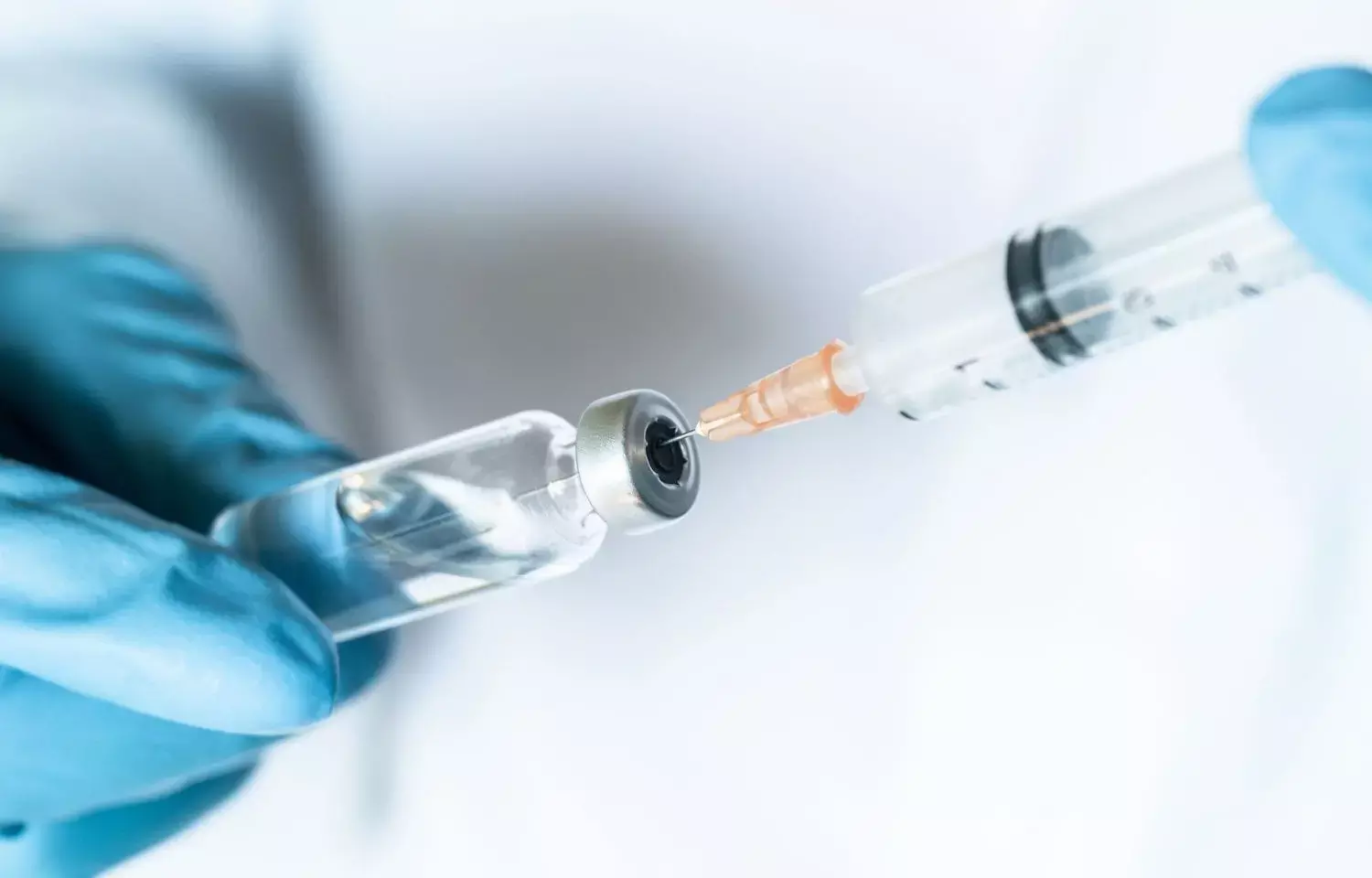- Home
- Medical news & Guidelines
- Anesthesiology
- Cardiology and CTVS
- Critical Care
- Dentistry
- Dermatology
- Diabetes and Endocrinology
- ENT
- Gastroenterology
- Medicine
- Nephrology
- Neurology
- Obstretics-Gynaecology
- Oncology
- Ophthalmology
- Orthopaedics
- Pediatrics-Neonatology
- Psychiatry
- Pulmonology
- Radiology
- Surgery
- Urology
- Laboratory Medicine
- Diet
- Nursing
- Paramedical
- Physiotherapy
- Health news
- Fact Check
- Bone Health Fact Check
- Brain Health Fact Check
- Cancer Related Fact Check
- Child Care Fact Check
- Dental and oral health fact check
- Diabetes and metabolic health fact check
- Diet and Nutrition Fact Check
- Eye and ENT Care Fact Check
- Fitness fact check
- Gut health fact check
- Heart health fact check
- Kidney health fact check
- Medical education fact check
- Men's health fact check
- Respiratory fact check
- Skin and hair care fact check
- Vaccine and Immunization fact check
- Women's health fact check
- AYUSH
- State News
- Andaman and Nicobar Islands
- Andhra Pradesh
- Arunachal Pradesh
- Assam
- Bihar
- Chandigarh
- Chattisgarh
- Dadra and Nagar Haveli
- Daman and Diu
- Delhi
- Goa
- Gujarat
- Haryana
- Himachal Pradesh
- Jammu & Kashmir
- Jharkhand
- Karnataka
- Kerala
- Ladakh
- Lakshadweep
- Madhya Pradesh
- Maharashtra
- Manipur
- Meghalaya
- Mizoram
- Nagaland
- Odisha
- Puducherry
- Punjab
- Rajasthan
- Sikkim
- Tamil Nadu
- Telangana
- Tripura
- Uttar Pradesh
- Uttrakhand
- West Bengal
- Medical Education
- Industry
Aflibercept increases retinal nonperfusion in eyes with proliferative diabetic retinopathy: Study

Texas: Aflibercept 2mg, administered intravitreal monthly or quarterly resulted in a significant increase in retinal nonperfusion (RNP) in patients with proliferative diabetic retinopathy (PDR), reports data from year 2 of the RECOVERY trial published in the journal Ophthalmology Retina.
Diabetic retinopathy is a microvascular complication of diabetes caused by damage to the blood vessels of the retina in the eye. Retinal nonperfusion (RNP) is an important biomarker for diabetic retinopathy (DR). Anti-vascular endothelial growth factor therapy, also known as anti-VEGF therapy or anti-VEGF medication, blocks vascular endothelial growth factors. Data suggest that consistent anti-VEGF pharmacotherapy (Aflibercept ) can slow RNP development, reduce the severity of diabetic retinopathy, and is associated with lower rates of proliferative diabetic retinopathy development.
The RECOVERY trial was conducted by Wykoff CC, Houston Methodist Hospital & Weill Cornell Medical College, Texas, and his research team to evaluate the impact of aflibercept (Eylea, Regeneron) on RNP among eyes with proliferative DR (PDR).
Researchers included participants with proliferative diabetic retinopathy and retinal nonperfusion for a prospective, randomized clinical trial with treatment crossover in the second year. At baseline, the subjects were randomized 1:1 to monthly (arm 1) or quarterly (arm 2) intravitreal 2 mg aflibercept. At the beginning of the second year, the treatment arms were crossed over so that the monthly-dosed subjects subsequently received quarterly dosing and vice versa. The primary outcome was a change in total RNP area (mm2) through year 2. Secondary outcomes included Diabetic Retinopathy Severity Scale (DRSS) scores; best-corrected visual acuity; central subfield thickness; additional measures of RNP, including ischemic index (ISI); and adverse event incidence.
Key findings of the trial:
• From baseline to year 2, the mean RNP increased from 235 mm2 to 402 mm2, and the ISI increased from 25.8% to 50.4%. These increases in RNP and ISI were also observed from year 1 to year 2.
• At year 2, the mean total RNP increased from 264 mm2 at baseline to 386 mm2 in arm 1 and from 207 mm2 at baseline to 421 mm2 at year 2 in arm 2 (arm 1 vs. arm 2).
• Increases in the mean RNP for both treatment arms were also specifically observed within year 2 (arm 1 vs. arm 2).
• Compared with baseline, the DRSS scores at the end of year 2 improved in 82% of subjects and remained stable in 18%, with no subjects experiencing worsening; at 2 years, the DRSS scores had improved by 2 or more steps in 65% and 81% of subjects in arms 1 and 2, respectively.
The authors conclude that both treatment arms, monthly or quarterly intravitreal 2 mg aflibercept, experienced significant increases in retinal nonperfusion through year 2 of the RECOVERY trial. Despite the expansion of the RNP area in nearly all subjects, 82% of subjects demonstrated an improvement in DRSS levels from baseline, with no subjects experiencing worsening in DRSS scores.
Reference:
Wykoff CC, Nittala MG, Villanueva Boone C, Yu HJ, Fan W, Velaga SB, Ehlers JP, Ip MS, Sadda SR; RECOVERY Study Group. Final Outcomes from the Randomized RECOVERY Trial of Aflibercept for Retinal Nonperfusion in Proliferative Diabetic Retinopathy. Ophthalmol Retina. 2022 Jul;6(7):557-566. doi: 10.1016/j.oret.2022.02.013
BDS
Dr. Hiral patel (BDS) has completed BDS from Gujarat University, Baroda. She has worked in private dental steup for 8years and is currently a consulting general dentist in mumbai. She has recently completed her advanced PG diploma in clinical research and pharmacovigilance. She is passionate about writing and loves to read, analyses and write informative medical content for readers. She can be contacted at editorial@medicaldialogues.in.
Dr Kamal Kant Kohli-MBBS, DTCD- a chest specialist with more than 30 years of practice and a flair for writing clinical articles, Dr Kamal Kant Kohli joined Medical Dialogues as a Chief Editor of Medical News. Besides writing articles, as an editor, he proofreads and verifies all the medical content published on Medical Dialogues including those coming from journals, studies,medical conferences,guidelines etc. Email: drkohli@medicaldialogues.in. Contact no. 011-43720751


